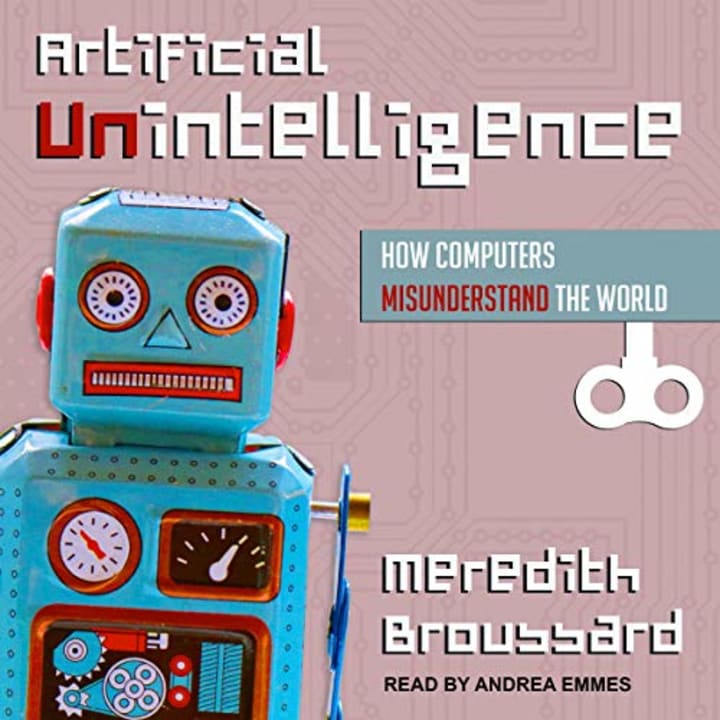Summary of the Book Artificial Unintelligence: How Computers Misunderstand the World
Summary

Summary of the Book Artificial Unintelligence: How Computers Misunderstand the World
Title: Artificial Unintelligence: How Computers Misunderstand the World
Author: Meredith Broussard
"Artificial Unintelligence: How Computers Misunderstand the World" by Meredith Broussard takes a deep dive into the world of artificial intelligence, or AI. But don't expect a love letter to computers in this book. Instead, Broussard serves up a reality check, showing us where AI falls short and how it often gets things wrong.
You know how sometimes people think computers are these super-smart beings that can solve any problem? Well, Broussard says that's not quite true. She starts by pointing out that while computers are good at certain things, like crunching numbers or sorting data, they're not so great at understanding the world in the same way humans do.
One big idea Broussard talks about is something called "technochauvinism." This is basically the belief that technology is better than humans in every way. But Broussard says that's a dangerous way of thinking. It leads us to trust AI too much, even when it's not always the best choice. Plus, it overlooks the fact that humans bring a lot to the table that computers can't replicate, like empathy and creativity.

Get access to this Book for 100% Free
Another important point Broussard makes is about bias in AI. She shows us how AI systems can actually make existing social problems worse by being biased themselves. For example, she talks about how some hiring algorithms might favor certain candidates over others based on things like race or gender. That's not fair, and it's something we need to watch out for.
But it's not all doom and gloom. Broussard also talks about the practical limitations of AI. She reminds us that while computers are good at some things, they're not so great at others. They might be able to crunch numbers really fast, but they struggle with things like understanding emotions or thinking creatively. That's where humans come in handy.
One big problem Broussard warns us about is something called "automation bias." This is when we rely too much on technology and stop thinking for ourselves. It's like when you trust your GPS so much that you don't bother looking at a map or asking for directions. That can get you into trouble, especially if the GPS isn't working right.
In the body of "Artificial Unintelligence: How Computers Misunderstand the World," Meredith Broussard dissects the complexities of artificial intelligence (AI) and its interactions with the real world. She challenges the prevailing notion of AI as an infallible solution to all problems, highlighting its limitations and biases.
Broussard explores the concept of "technochauvinism," which glorifies technology over human intelligence. She argues against this mindset, emphasizing the unique qualities humans bring to problem-solving, such as empathy and creativity.
The book delves into the issue of algorithmic bias, illustrating how AI systems can perpetuate societal inequalities. Broussard provides examples of biased algorithms in various domains, urging readers to scrutinize the underlying assumptions and data sources.
Practical limitations of AI are examined, emphasizing its inability to comprehend context, emotions, and abstract concepts like humans do. Broussard warns against "automation bias," cautioning against over-reliance on technology without human oversight.
Throughout the text, Broussard advocates for a nuanced understanding of AI, calling for transparency, accountability, and diversity in its development and implementation. She offers practical recommendations for mitigating the risks associated with AI while maximizing its potential for positive impact.
At the end of the book, Broussard gives us some practical tips for how to do that. She says we need more transparency and accountability in AI development, as well as more diversity in the tech industry. That way, we can make sure AI works for everyone, not just a select few.
Conclusion
"Artificial Unintelligence" is a wake-up call for anyone who thinks AI is all rainbows and unicorns. Broussard reminds us that while computers are powerful tools, they're not perfect. We need to be mindful of their limitations and use them wisely. If we do that, we can harness the power of AI for good while avoiding the pitfalls that come with it.
About the Creator
Book Snap Summaries
📚 Welcome to Book Snap Summaries! Dive into the world of literature with our bite-sized book summaries. 📖 We're here to provide you with concise yet insightful overviews of your favorite reads, saving you time while keeping you informed.






Comments
There are no comments for this story
Be the first to respond and start the conversation.